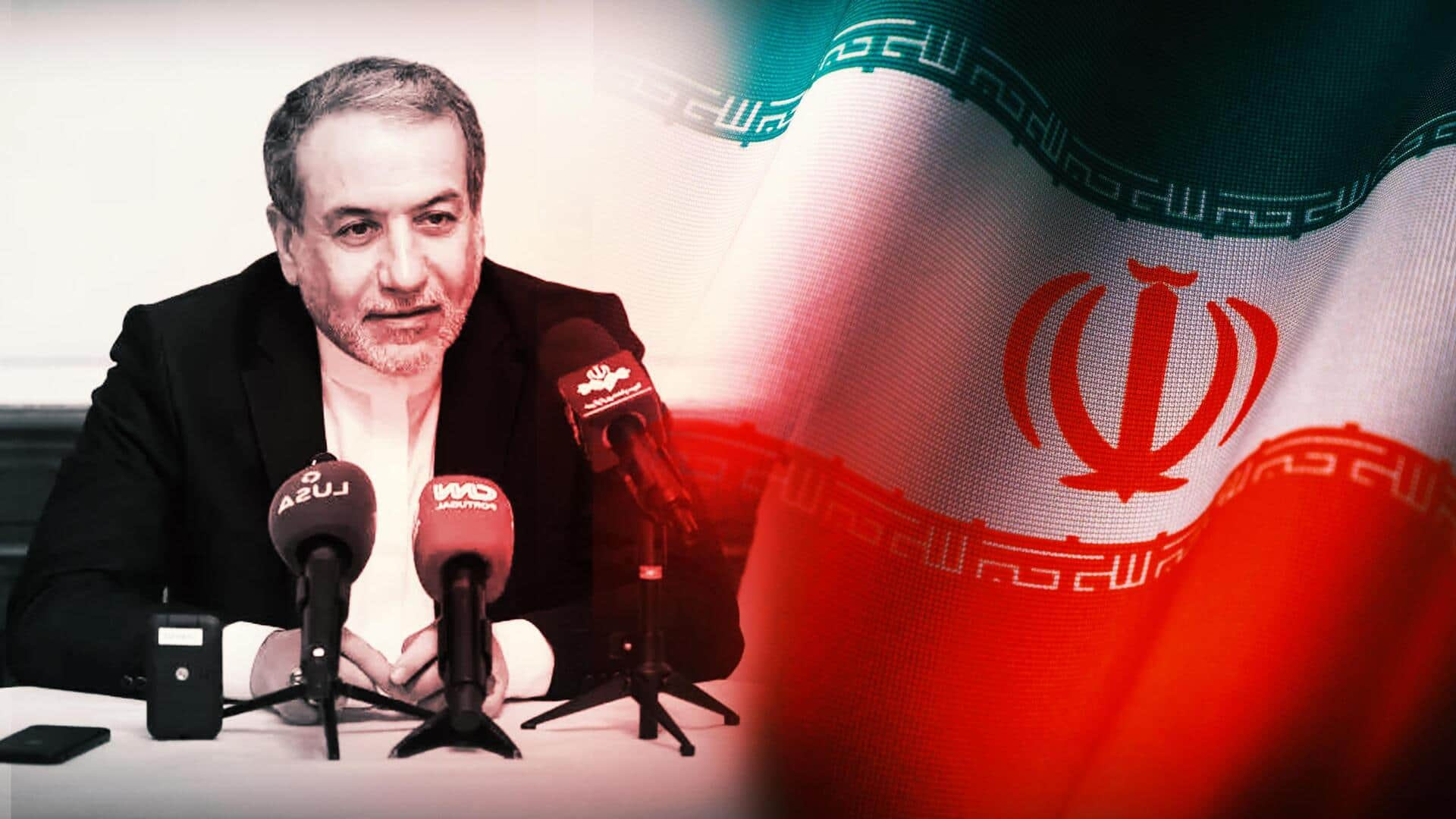
Iran may end nuclear weapons ban if sanctions reimposed: Minister
What's the story
Iran's Foreign Minister—Seyed Abbas Araghchi—has warned that the country could reconsider its ban on possessing nuclear weapons if Western nations go ahead with reimposing United Nations sanctions. Speaking in an interview, Araghchi revealed that while Iran has the capability to develop nuclear weapons—they currently don't form part of its security strategy. This comes after European nations moved a censure motion against Iran at the International Atomic Energy Agency, accusing it of non-cooperation and building a uranium stockpile without peaceful intent.
Nuclear negotiations
Iran's response to European confrontation and IAEA accusations
Araghchi was skeptical about the upcoming negotiations in Geneva with European countries, saying the UK, Germany, and France are leaning toward confrontation. He alleged that IAEA Director General Rafael Grossi had previously assured Iran that a censure motion would be avoided if Iran capped its uranium enrichment at 60% and permitted inspections. However, "the Europeans had decided on the course of confrontation," Araghchi said.
Nuclear escalation
Iran introduces advanced uranium enrichment machines
Responding to the pressure, Iran has brought advanced machines for uranium enrichment. Even as the escalation continues, Araghchi stressed Iran is still within the nuclear non-proliferation treaty's boundaries and wants cooperation for a dignified resolution. He admitted there is an internal debate in Iran over the effectiveness of their current nuclear policy as Western nations didn't meet expectations of sanction relief.
Regional politics
Iran's stance on regional issues and military cooperation
While addressing regional issues, Araghchi denied supplying ballistic missiles to Russia but defended military cooperation with Moscow. He also affirmed Iran's willingness to continue supplying arms to Hezbollah in Lebanon if requested. Araghchi criticized Israel's ceasefire with Lebanon as an indication of its inability to achieve its objectives against Hezbollah. He dismissed Israeli Prime Minister Benjamin Netanyahu's claims linking the ceasefire to preventing Iranian nuclear armament.
Domestic affairs
Iran's foreign minister reflects on domestic challenges
Reflecting on domestic challenges, Araghchi admitted President Masoud Pezeshkian's election victory was fueled by a wish to lift sanctions and engage with the world. But did Pezeshkian get a welcome from Western nations after his inauguration? "The morning after his inauguration ceremony, Ismail Haniyeh [the Hamas political bureau leader] was assassinated in Tehran," he said. "I have spent my first 100 days as foreign minister trying to prevent a full-scale war."